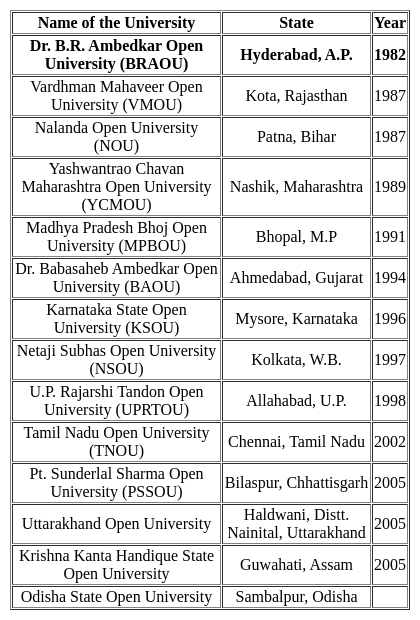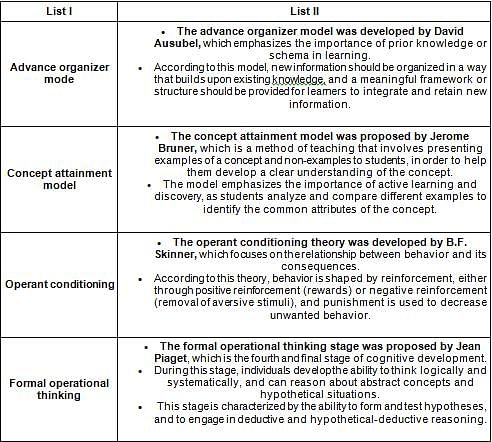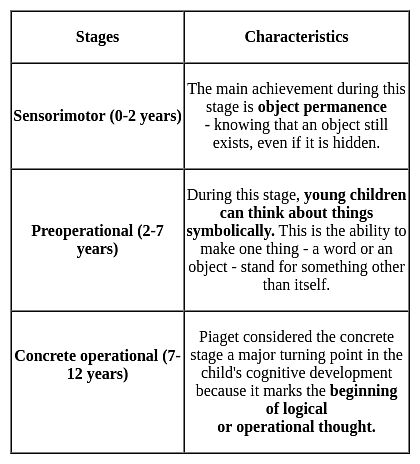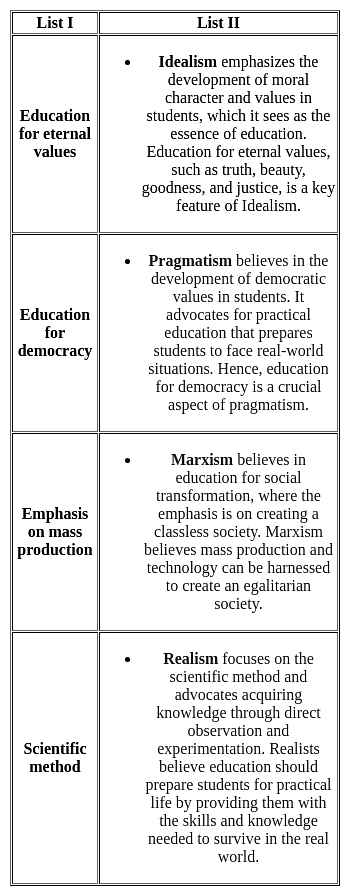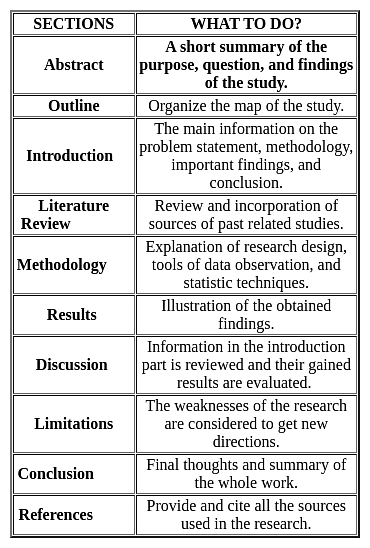UGC NET Paper 2 Education Mock Test - 5 - UGC NET MCQ
30 Questions MCQ Test - UGC NET Paper 2 Education Mock Test - 5
The effective strategy to impart Value Education is through:
The first open university in India was established in the year
| 1 Crore+ students have signed up on EduRev. Have you? Download the App |
Match List - I with List - II and choose the correct match from codes given below :
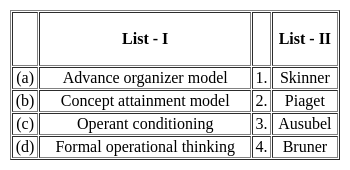

Consider the following statements with respect to the Charvaka school of philosophy :
1. It is also known as the Lokayata school of philosophy.
2. It denied the existence of god or any other divine agent.
3. It is an orthodox school of Indian philosophy.
Which of the statements given above are correct?
Read the following statements and choose the correct option:
- Each child has her/his own style of learning.
- Auditory learner enjoys listening to stories.
- Children learn through discussions and debates in a group.
- Children carry their experiences of religious practices from school to home.
According to Piaget, which stage of cognitive development begins in adolescence?
Which of the following statements is/are TRUE for the teacher-centered approach?
1. Courses prescribed for a class can be completed in time.
2. Students can develop proper reading ability.
3. Students taught in this approach are better disciplined.
In which year was the Right to Education Act enacted in India?
When the independent variable is explored rather than manipulated, to observe the effect on dependent variable, the method of research is called.
Match the items of List - I with that of List - II and select the appropriate code given below :
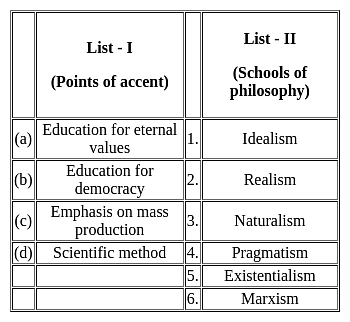
In the two sets given below, Set – I provide the format of presentation and Set – Il gives the distinct features to go with them. Match the two sets and select from the code to indicate your answer.
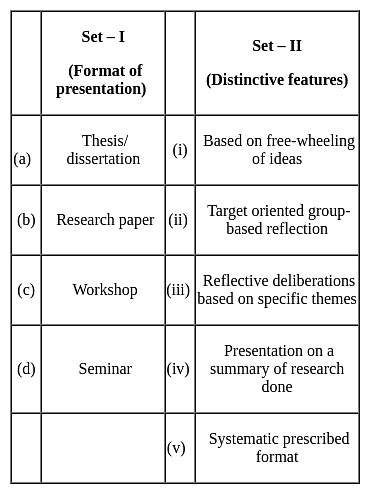
Statement I: The Hansa Mehta committee made a recommendation that there is a need to make differentiation in curriculum on the basis of sex.
Statement II: Bhaktavalsalan committee recommended that the government and public should both act jointly, realise their responsibilities and proceed in a planned manner with regard to education of girls in future.
In light of the above statements, choose the most appropriate answer from the options given below:
What was the main emphasis of Rabindranath Tagore's educational philosophy?
Which are the main types of questions in Socratic strategy?
Person who possesses qualities of leadership is
In _____ method only the teacher talks the students are passive listeners and they do not take any active part.
The quality of test showing ease of time, cost, administration and interpretation is called?
Which of the following affects an individual's development at a given time?
What is/are the role of community participation in education?
I. To increase funding for schools.
II. To provide volunteers to support school programs.
III. To provide students with access to technology and other resources.
IV. To engage parents and community members in decision-making and planning.
Dipboye (1977) distinguished between the strong and weak versions of.
In a negatively skewed curve obtained after testing students the correct inference about the difficulty of the test would be:
Majority of the students in a class misbehave what does it tell you?
Team teaching has the potential to develop:


